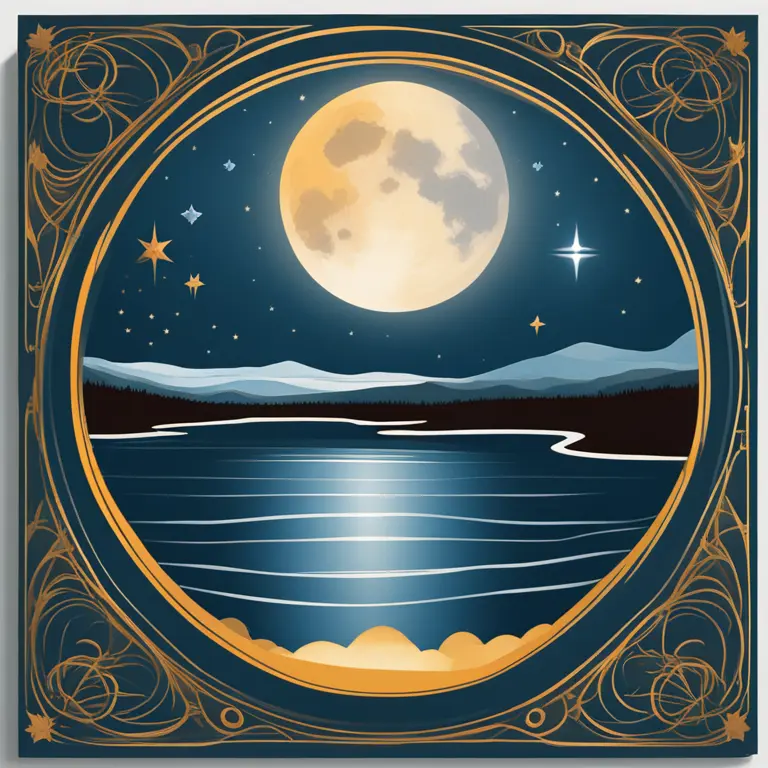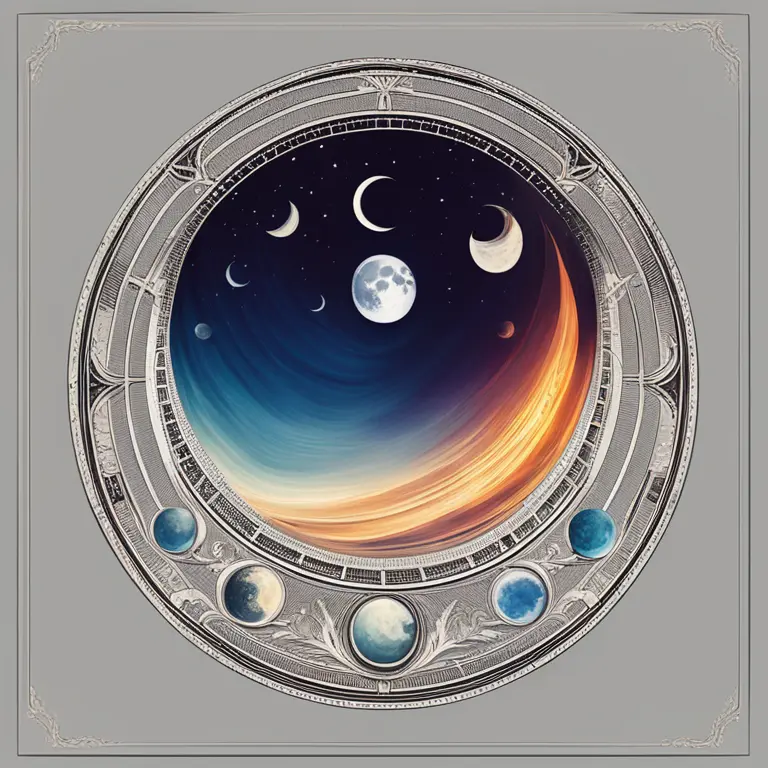
Moon Phases and Mood Swings: Is There a Connection?
Delve into the fascinating world of lunar influence as we explore whether moon phases can truly affect human moods and behavioral patterns.
article by Priya Deshmukh
Lunar Lore and Emotional Tides
For centuries, the moon has been a source of wonder and speculation, often believed to hold sway over the seas and our psyches alike. In various cultures, the lunar cycle has been linked with human behavior, with many anecdotes supporting the idea that the waxing and waning of the moon can directly influence our moods. But beyond folklore and myth, what does modern science say about this celestial connection? As we scrutinize the moon's phases and their possible psychological impacts, we embark on a journey that intertwines astronomy, astrology, and the intricacies of the human mind.

The Science Behind Lunar Influence
Scientific studies have attempted to correlate lunar phases with mood alterations, with mixed results. While no definitive evidence confirms a concrete relationship between moon phases and mood swings, some research suggests that the light emitted by a full moon may affect sleep patterns, indirectly impacting mood. Aspects of human biology, like menstrual cycles and circadian rhythms, exhibit periodicity, and thus, it is not entirely implausible that the lunar cycle could play a role in modulating our emotional states. However, the connection, if any, remains elusive and subject to ongoing investigation.

Astrology and the Emotional Moon
Astrologically, the moon represents our inner world: emotions, instincts, and the subconscious. Each phase, from the New Moon to the Full Moon, signifies different energies in astrological practice. For instance, in 2024, the New Moon in introspective Scorpio may intensify emotional depths, while a Full Moon in expressive Leo could bring dramatic feelings to the surface. Astrology posits that awareness of the moon's current sign can guide individuals in understanding their daily emotional landscape and managing their moods more effectively.

Personal Experiences and Anecdotal Evidence
Anecdotes abound of individuals claiming heightened emotions during certain lunar phases. Some report feeling energized and outgoing as the moon waxes, while others describe a sense of culmination or tension at the Full Moon. During waning phases, moods may turn inward, and energy levels dip in anticipation of renewal. While these experiences are subjective, they offer intriguing perspectives into the possible lunar influence on our emotional lives, suggesting an inherent connection between the cosmos and our internal experiences.
Strategies for Lunar-Related Mood Management
If one presumes a link between the moon's phases and mood, certain strategies may help in navigating emotional tides. Mindfulness, meditation, and journaling during different lunar phases can offer insights into personal mood patterns. Additional practices include aligning sleep hygiene with the lunar cycle, or planning important activities to coincide with phases that purportedly enhance energy and positivity. Regardless of empirical backing, these practices can foster greater emotional awareness and well-being.
Future Prospects in Lunar Studies
The quest to thoroughly understand the moon's influence on our moods is ongoing. As we progress technologically and scientifically, future research may uncover subtler aspects of lunar effects on human behavior. Quantifying and qualifying such influences challenge researchers to look beyond conventional methodologies and to consider how celestial bodies might intersect with human psychology. Until then, the lunar-mood connection floats in a realm of potentiality, inviting both skepticism and curiosity.
Published: 1/19/2024
Modified: 1/19/2024
More predictions
Come back here soon to learn more about yourself and your future


The Nine of Cups Tarot Card: A Symbol of Fulfillment
Discover the rich symbolism and meanings behind the Nine of Cups Tarot card, often dubbed the "Wish Card," and its significance in readings.


The Essentials of Tarot Elements
Discover the significance of the four classic elements within tarot to enrich your readings and personal insights.


Tarot Cards vs Zodiac Horoscopes: A Comparative Guide
Discover the differences between tarot readings and zodiac horoscopes, two popular methods used to gain insights into our lives and futures.